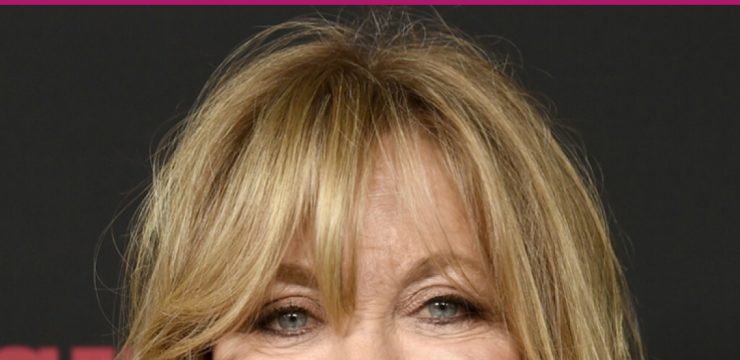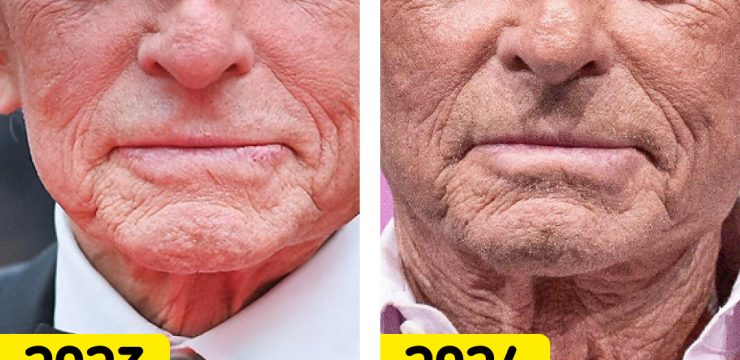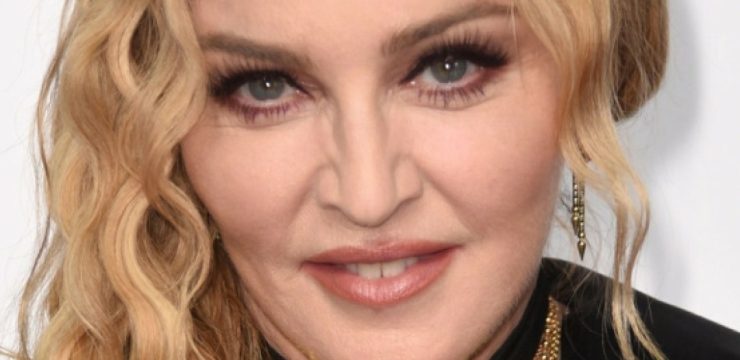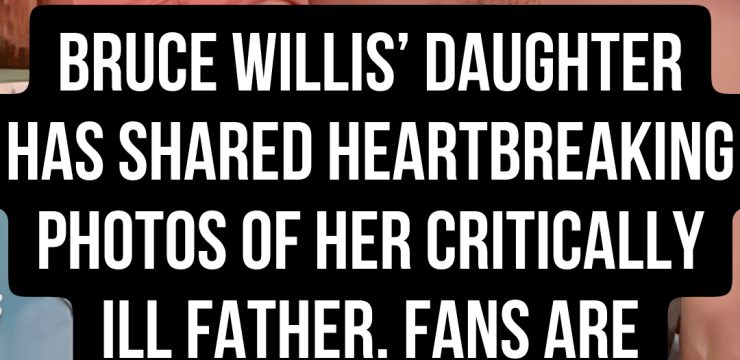Paris Jackson no longer exists solely in the shadow of her famous last name. While many people may still associate her with being the daughter of the legendary Michael Jackson, Paris has carved out a distinctive identity, gaining recognition for her unique style and growing presence in the entertainment and fashion industries. A creative force in her own right, she has embraced a life of artistic expression, personal authenticity, and social advocacy—making her a regular presence at major fashion events around the globe. Her recent appearance at the Paris Fashion Week fall-winter 2025 event hosted by Chloé, one of the most iconic fashion houses in the world, put her back in the spotlight. However, a seemingly small detail during the post-show festivities quickly sparked a digital storm, raising questions about consistency, public perception, and the intense scrutiny celebrities face online.

Paris Jackson’s journey is one of self-definition. From a young age, she has been clear about wanting to break away from the image imposed upon her by her father’s fame. She stepped into the world with a desire to build something of her own—pursuing a career that spans music, modeling, acting, and activism. In interviews and on social media, Paris has been candid about her spiritual path, emotional struggles, and devotion to causes like environmental sustainability, animal rights, and veganism. Her partnership with ethical fashion brands such as Stella McCartney and her involvement in various awareness campaigns has been a defining feature of her public persona. Through it all, she has made it clear that living in alignment with her values is not just an aesthetic but a principle she holds close.
This is why her attendance at the Chloé fashion show during Paris Fashion Week drew so much attention—not just for her impeccable style but for what happened afterward. Dressed in a breezy bohemian ensemble complete with her signature undone waves and minimalist ballerina flats, Paris was the epitome of understated glamour. Seated front row among other fashion insiders and A-list guests, she represented a modern muse for the Chloé brand—feminine, free-spirited, and effortlessly cool.
After the show, Jackson attended an exclusive dinner hosted by Chloé, where select guests from the fashion industry gathered to celebrate the brand’s newest collection. As part of her usual routine of sharing personal experiences with her followers, she posted a series of photos from the evening. These included snapshots of herself glowing with elegance, immersed in conversation with fellow attendees, and generally enjoying the exclusive atmosphere. However, one image stood out: a clear shot of the event’s printed menu.
Among the listed gourmet offerings was one particular item that triggered immediate backlash—foie gras.
For those unfamiliar with it, foie gras is a traditional French delicacy made from the liver of a duck or goose that has been force-fed to induce fatty enlargement of the organ. While celebrated in some culinary circles for its rich flavor and cultural significance, foie gras has long been at the center of ethical debates. Many animal rights organizations and activists criticize the practice as cruel and inhumane, pointing out the suffering endured by animals subjected to this kind of treatment. In response, several countries and U.S. jurisdictions have banned the production or sale of foie gras, and numerous petitions and protests continue to circulate online and within activist communities.
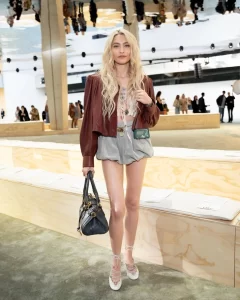
So when Paris Jackson—who has openly expressed her commitment to animal rights and ethical living—shared an image featuring this controversial dish, the reaction was swift and passionate.
Comments began pouring in from disappointed fans and critics alike. “Foie gras? Seriously?” wrote one follower. Another commented, “I thought you were vegan. How could you endorse this?” Some questioned whether she even realized what was on the menu, while others challenged her integrity. “You can’t claim to love animals and post this,” read one sharply worded reply. “Friends, not food,” declared another, echoing a popular vegan slogan.
The image was not one of advocacy or endorsement, at least not intentionally. But in the digital age, perception is everything. Sharing a photo of the menu—even as part of a behind-the-scenes look into a glamorous evening—was enough to ignite a conversation about authenticity, personal responsibility, and the complicated relationship between celebrities and the causes they support.
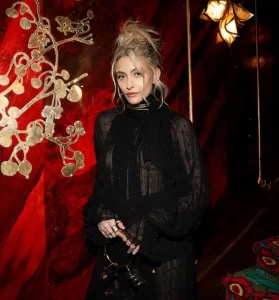
Defenders of Paris were quick to respond as well. “She didn’t cook the meal. It’s a standard dish in France,” one user noted. Others emphasized that just because foie gras was served doesn’t mean Paris ate it or approved of it. “She might not have even noticed it was on the menu,” another follower suggested. In a world where celebrity actions are dissected in real-time, these explanations might not have been enough to shield her from the wave of criticism that followed.
This incident raises broader questions about how celebrities can navigate public expectations while participating in industries that don’t always align with their values. The fashion world, for example, is increasingly making moves toward sustainability and cruelty-free practices, but not all traditions disappear overnight. Events like Paris Fashion Week remain deeply entrenched in cultural customs—some of which conflict with newer ethical standards.
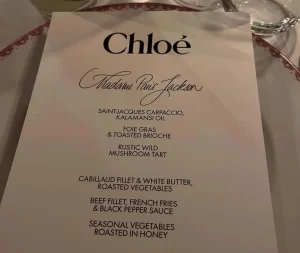
Paris Jackson finds herself in a delicate position. Her lifestyle, personal values, and public image are closely scrutinized by a large and passionate fanbase. That connection is both a strength and a challenge. It allows her to inspire and connect on a deep level, but it also means that every post, photo, or gesture can become a litmus test of her integrity. Whether or not she personally consumed the foie gras is almost beside the point—the real issue lies in the assumptions people make and how quickly narratives can spiral online.
As social media continues to shape the way public figures are judged, moments like this serve as a reminder of the fine line celebrities must walk. Advocacy and authenticity go hand in hand, but public perception often lags behind nuance. One image can be interpreted a thousand different ways, and with millions of eyes watching, the consequences can be immediate and overwhelming.

It’s unclear whether Paris will address the situation directly. She’s no stranger to controversy and has previously spoken out about the pressures of fame and the desire to live a genuine life, free from the expectations others place on her. Whether she chooses to clarify, apologize, or simply move forward, one thing is clear: she remains a figure of interest and influence, someone whose actions—intended or not—spark conversation and reflection.
This story isn’t just about a menu item or an Instagram post. It’s a case study in how the intersection of celebrity, ethics, and social media continues to evolve. It demonstrates the power of public platforms and the intense expectations placed on those who use them. More than anything, it reminds us that no one, not even someone as stylish and self-aware as Paris Jackson, is immune to the microscope of modern digital culture.

If you’re interested in how other celebrities navigate public backlash and balance their ideals with real-life decisions, you might want to read more stories like this one. Dive into the world of stars who passionately advocate for animal welfare while managing careers in industries not always aligned with those values. There’s more to explore about how people redefine their images, challenge expectations, and continue growing—even under pressure.
